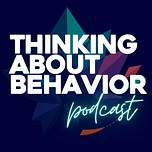This episode explores why questions about past behaviour—so common in interviews and research—often give us less insight than we assume. Drawing on Daniel Schacter’s “seven sins of memory” and research on autobiographical recall, it highlights how distortion, cultural framing, and the limits of memory shape what people report about their past actions.
The episode also makes the case for moving beyond single-method inquiry. If we want to understand behaviour in context, we need to account for how memory works, how people interpret their own actions, and how culture shapes what is remembered and shared.
The podcast version was created with AI tools and curated by Elina Halonen to reflect the intent and tone of the original. It’s designed for those moments when you don’t have the bandwidth to read a long, detailed article—something you can listen to while doing other things, and come back to the full piece when you're ready to dive deeper.
The Seven Sins of Memory: why asking about past behaviour isn't enough
Experts often recommend focusing on past behavior during interviews to gain accurate insights into a person's skills, experiences, and decision-making. However, this approach can overlook the complex nature of human memory and the factors that can distort our recollections. This article explores the "seven sins of memory" and the influence of culture on…










